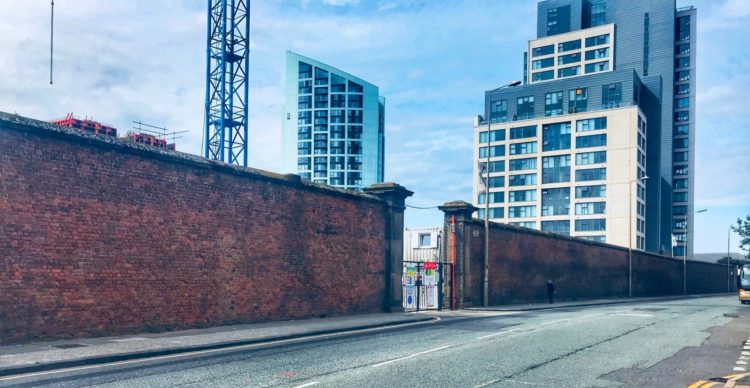Following discussions with Historic England and the council Peel will create a new entrance in the wall, a Grade II-listed structure, at Bath Street into its £5bn Liverpool Waters scheme. Tony McDonough reports

Property giant Peel has secured consent from Liverpool Council to create a new opening in the historic dock wall at Princes Dock.
Following discussions with Historic England and the council Peel will create a new entrance in the wall, a Grade II-listed structure, at Bath Street into its £5bn Liverpool Waters scheme.
To ensure minimal disruption of the works being carried out, the creation of the new entrance in the boundary wall will take place in two phases.
First phase
The first phase will take place during the construction of Princes Dock’s three new residential developments and will create a 15.7 metre opening in the wall. This will serve as the main entrance to Princes Dock for pedestrians, cyclists and vehicles during the partial closure of William Jessop Way.
However, to minimise disruption for users of Princes Dock, this route will remain open Monday to Friday between 7.30am and 9.30am.
The second phase will reuse the original materials to carefully reconstruct a permanent six-metre opening, which will be a significant improvement on the wall’s current pedestrian only entrance.
William Jessop Way will then be reopened to the public and the new opening will provide enhanced connectivity for cyclists and pedestrians between Princes Dock and the city centre.

Team effort
Liverpool Waters’ team for this proposal included Arup as planning lead, Planit-IE as landscape architects, Curtins for transport and engineering advice, Walker Sime for project and cost management and Rob Burns, providing heritage guidance.
Darran Lawless, development director at Liverpool Waters, said: “For this application, it was paramount that we consulted with all our partners and stakeholders from the very beginning, ensuring the important historical nature of the boundary wall was respected and preserved for future generations.
“Working closely with Historic England and Liverpool City Council highlights our commitment to maintaining the boundary wall, while making Liverpool Waters, the city centre and indeed the entire waterfront much more convenient and accessible for all those living and working in the city.”

